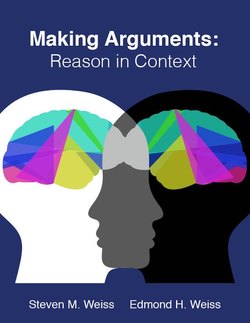Читать книгу Making Arguments: Reason in Context - Edmond H. Weiss - Страница 12
На сайте Литреса книга снята с продажи.
Principle #3—Argumentation is always “grounded.”
ОглавлениеNo argument begins without context, presupposition, and history. Arguments are grounded, which is a good thing. Otherwise, arguers would have to reconstruct all controversies from their perceived starting points. Human beings have cataloged their disagreements since the time writing was invented, and this saves us the time we need to proceed with advocacy. As an argumentative community, Law has served as one of the best examples of how to ground arguments. When lawyers argue cases, they do so in light of precedent, prior cases, decisions, and appeals. A well-prepared legal advocate is fully aware of the status of an argued position, the “standpoint” from which advocacy proceeds.
Even less formalized contexts for argument proceed with the assumption of grounding. We have to know where we are and where we are going for an argument to take place. The faculty at a college, contemplating a switch to a plus/minus grading system, begins the debate aware that many universities have already made the switch. The studies, the data, the justification—all have been presented before. If the faculty would choose to study the question anew, they would perhaps lose two years needed to implement the policy. Because the issue has grounding, the faculty can move directly to the salient issues for them—the appropriateness and potential implication of the new grading policy.
A famous philosopher once put a spider on a desk at the front of a classroom he was teaching. “Observe,” he said. After a time, a bright student piped in: “Observe what?” The point: human intellectual activity does not proceed from a tabula rasa. Because argument is a rational activity, it is grounded in rational frame within which we proceed to make arguments.
